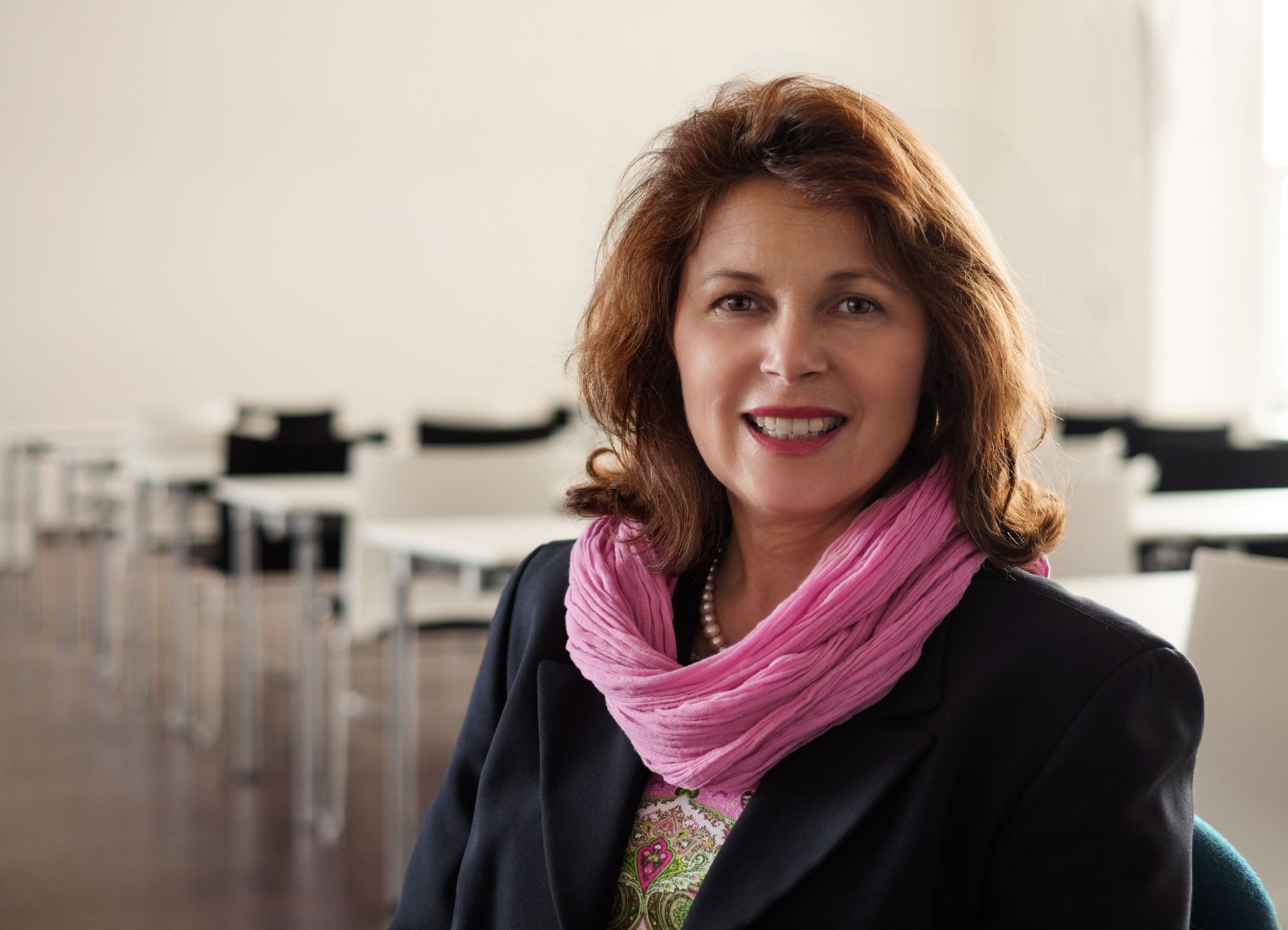DKTK – Das Deutsche Konsortium für Translationale Krebsforschung
Neue, vielversprechende Ergebnisse aus der Krebsforschung sollen möglichst schnell in die klinische Entwicklung und Anwendung gelangen. Zur Unterstützung dieses Ziels wurde im Jahr 2012 das Deutsche Konsortium für Translationale Krebsforschung, kurz DKTK, als eines der Deutschen Zentren der Gesundheitsforschung (DZG) gegründet. Mit dem Deutschen Krebsforschungszentrum (DKFZ) als Kernzentrum kooperieren mehr als 20 akademische Forschungseinrichtungen und Universitätskliniken in Translationszentren an 8 Partnerstandorten.
Derzeit gibt es in Deutschland etwa 1.4 Millionen Krebskranke – Tendenz steigend. Die immer älter werdende Gesellschaft spielt dabei eine wichtige Rolle: Bei vielen Krebsarten steigt das Erkrankungsrisiko im Alter. Erschwerend hinzukommen komplexe Wechselwirkungen zwischen genetischer Prädisposition (Veranlagung), Lebensart und Umweltfaktoren. Die effektive Früherkennung, Diagnose, Behandlung und Prävention von Krebs gehört daher zu den größten Herausforderungen der Gesundheitsforschung.
Das DKTK ist eine gemeinsame langfristige Initiative des Bundesministeriums für Bildung und Forschung (BMBF), den teilnehmenden Bundesländern und dem DKFZ. Hauptziel des DKTK ist die Entdeckung, Entwicklung, Erprobung und Anwendung neuer Strategien für die personalisierte Onkologie. Dafür fördert das DKTK interdisziplinäre Forschungsthemen an der Schnittstelle zwischen Grundlagenforschung und Klinik, sowie klinischen Studien von innovativen Therapie- und Diagnoseverfahren.
Expertise in der klinisch-orientierten Krebsforschung fördern
Eine Maßnahme des DKTK ist es, neue langfristige Forschungsinfrastrukturen an den DKTK Standorten zu schaffen. Durch Leitung einer unabhängigen DKTK Nachwuchsgruppe oder Berufung auf neu einzurichtende W2/3-Professuren können talentierte Wissenschaftler:innen ihren nächsten Karriereschritt machen. Insgesamt wurden im DKTK 15 neue W3 sowie zwei W2 Professuren zur Verfügung gestellt. Darüber hinaus wurden neue Nachwuchs- sowie Juniorgruppen eingerichtet.
Förderung standortübergreifender Projekte und klinischer Studien
Mehr als 1.000 Forschende aus der Medizin und den Naturwissenschaften verbinden innerhalb des DKTK innovative Grundlagen- und klinische Forschung. Zur Förderung von standortübergreifenden Forschungsprojekten innerhalb des DKTK stehen Mittel aus dem sogenannten „DKTK Joint Funding-Programm“, des DKTK, zur Verfügung. Seit 2012 sind im DKTK über 50 Joint Funding-Vorhaben gestartet.
Plattformen und Schwerpunktprogramme bündeln die Kräfte
Ermöglicht werden die innovativen Forschungsarbeiten im DKTK in vielen Fällen erst durch eine Reihe neu geschaffener Forschungsinfrastrukturen und -plattformen. Dazu zählen Anlagen für die Produktion von Antikörpern und Peptiden in klinischer Qualität, Hochdurchsatz-Technologien für das Genom- und Proteinanalyse und große Rechenzentren für die Bioinformatik. Als Datenbrücke zwischen der Grundlagenforschung und der Klinik wurde die Klinische Kommunikationsplattform (DKTK Clinical Communication Platform, CCP) im DKTK etabliert. Sie ist als Informationsdrehscheibe für die Krebsforschung gedacht und ermöglicht DKTK Wissenschaftler:innen standortübergreifenden Zugang zu Bioproben und Patientendaten unter Einhaltung höchster Datenschutzansprüche. Die Aus- und Weiterbildung von Grundlagenforschern und Ärzt:innen in der klinisch-orientierten Krebsforschung ist eine weitere wichtige Aufgabe im DKTK. Mit der School of Oncology wurde eine in Deutschland bisher einmalige Spezialisierungsmöglichkeit im Bereich translationaler Onkologie geschaffen.
2016 wurden fünf Forschungsprogramme definiert, in denen die DKTK Wissenschaftler:innen standortübergreifend multidisziplinär Themen zu den aktuellen großen Herausforderungen in der medizinischen Onkologie (darunter Früherkennung, Immuntherapie, Resistenzmechanismen, Molekulare Profile und Datenmanagement) bearbeiten.
Das Ergebnis dieser Kombination aus Struktur- und Projektförderung stellt ein in Europa einmaliges Netzwerk mit einigen der stärksten Krebsforschungs- und Krebstherapiezentren Deutschlands dar, um die Diagnose- und Behandlungsmöglichkeiten von Patient:innen nachhaltig zu verbessern.
Zusammenarbeit mit Zulassungsbehörden
Ehe Wirkstoffe und neue Verfahren am Patienten erprobt werden dürfen, müssen sie ein rigoroses, umfassendes Prüfprogramm bestehen, das mehrere Jahre dauern kann. In diesen sogenannten vorklinischen Tests werden Wirksamkeit und Verträglichkeit des Wirkstoffes zunächst im Labor unter streng kontrollierten Bedingungen untersucht. Das Paul-Ehrlich-Institut (PEI), Bundesinstitut für Impfstoffe und biomedizinische Arzneimittel, unterstützt Forschende und Kliniker:innen des DKTK mit regulatorischer Expertise bei der Überführung von Forschungsergebnissen in die klinische Prüfung am Menschen.
Das PEI unterstützt die Wissenschaftler:innen des DKTK beispielsweise durch informelle Kick-Off Meetings in einem frühen Stadium der Translation eines Entwicklungskandidaten, durch nationale wissenschaftliche Beratung, Workshops und Diskussionsrunden zu generellen und Produkt-spezifischen regulatorischen Themen.
Infomaterialien für Wissenschaftler:innen:
Koordinator:innen am PEI:



Impressionen PEI-DKTK Information Day 2019
Pressemitteilung über den "PEI-DKTK Information Day 2019". Der "PEI-DKTK Information Day 2019" hat sich mit der richtigen Planung von klinischen Studien beschäftigt.
Fotos: © Jutta Jung/ DKFZ